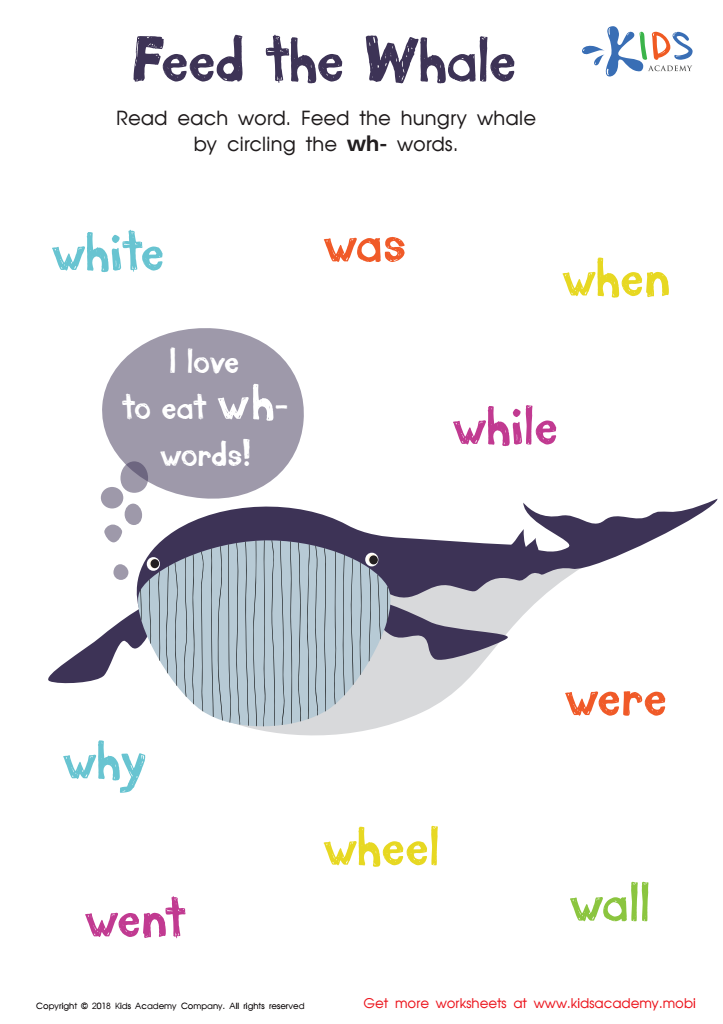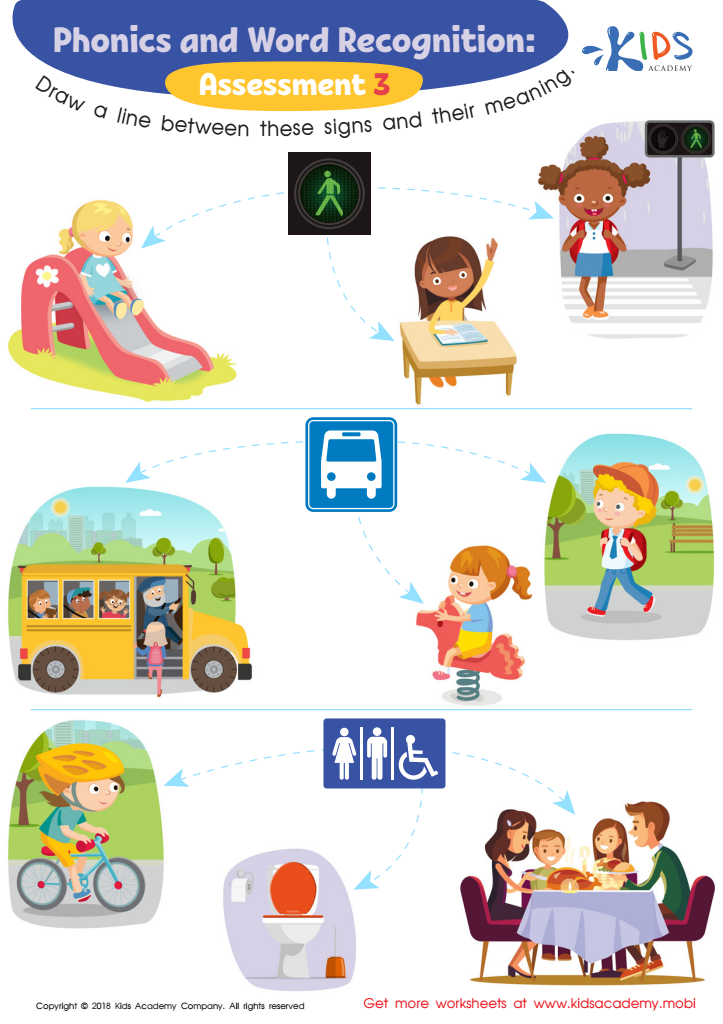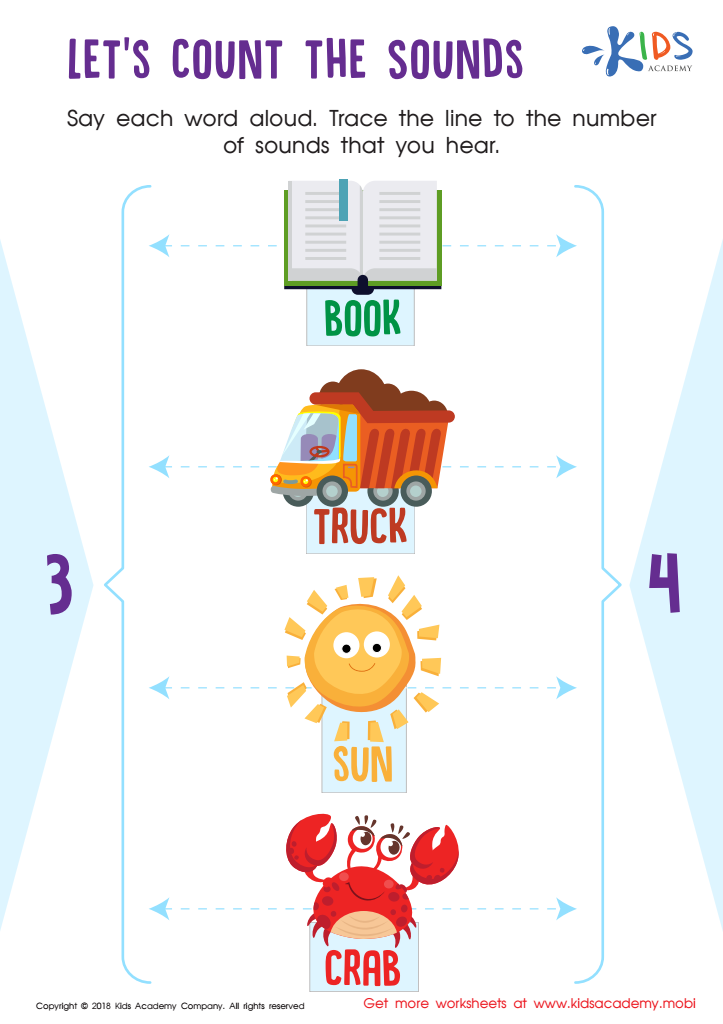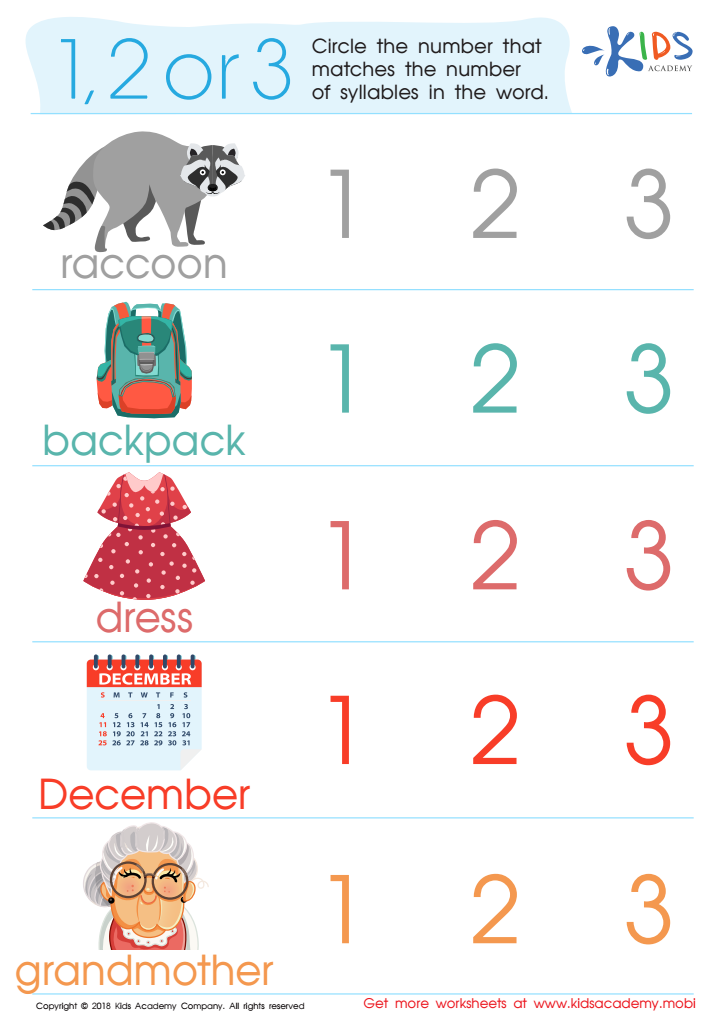Counting skills Phonics Worksheets for Ages 4-7
4 filtered results
-
From - To
Foster essential numeracy and literacy with our Counting Skills Phonics Worksheets for Ages 4-7! Ideal for early learners, these engaging, fun-filled worksheets seamlessly blend counting practice with phonics activities, advancing both mathematical and reading abilities. Each worksheet helps children master number recognition, basic addition, and word formation through playful exercises and colorful imagery. Perfect for at-home learning or classroom use, our carefully designed resources support skill development in line with fundamental educational milestones, providing a strong, confident foundation in both counting and phonics for young students. Unlock your child's full potential with our expertly crafted learning tools!


Feed the Whale Worksheet


Phonological Awareness: Assessment 3 ELA Worksheet


Let's Count the Sounds Worksheet


1, 2 or 3? Worksheet
Counting skills and phonics are fundamental building blocks for early childhood education, and they hold significant importance for children aged 4-7. Parents and teachers should focus on nurturing these skills because they lay the groundwork for future learning.
Counting skills, for instance, help kids develop their numerical understanding and mathematical abilities. Learning to count supports basic arithmetic operations like addition and subtraction, which are crucial for more advanced math concepts. It also enhances logical thinking, problem-solving, and even everyday activities like telling time or handling money.
Phonics, on the other hand, is vital for language development and reading proficiency. Phonics teaches children the relationships between letters and sounds, which is essential for decoding words. Mastery in phonics boosts reading fluency, improves comprehension, and fosters a love for reading, which is crucial for their academic success and lifelong learning.
Both skills boost confidence: children who are proficient in counting and phonics are more likely to participate actively in class and enjoy learning. They also tend to perform better in school, which can positively affect their self-esteem and motivation. Parents and teachers investing in these foundational skills provide children with the necessary tools for academic achievement and personal growth.

 Assign to My Students
Assign to My Students




















